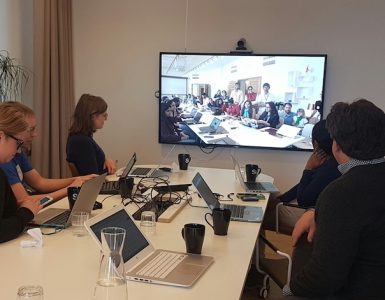The way in which we work has been changing dramatically over the past few years. The benefits of high-speed internet connectivity has transformed telecommunications and made having a fully functioning ‘home office’ a reality for anyone who decides to work from home.

In other areas, the idea of a better life/work balance has become a big deal, with employers having to make concessions for flexible working hours and taking into account the family lives of workers to a far greater degree.
A major result of these changes and many others is that more people than ever before are now self-employed in the UK, and the trend looks like growing in the years to come.
What is freelancing?
Freelancing is essentially a term for being self-employed and working in what a more recent buzzphrase calls the ‘gig economy’. Of course, you can be self employed and still have one exclusive client or customer, but for many people spreading their work over a number of different projects actually give greater stability and wider protection.
A freelancer will usually look at providing skills and services for a range of clients in order to build up an ongoing portfolio of work. This approach to working is particularly suited to specialists in certain fields, or skilled and experienced people whose line of work is in demand by a range of businesses and clients.
Experimentation
Of course, any form of self-employment can be a daunting prospect for many people, especially those who have enjoyed the security of a regular salary from a full time job. However, one of the great things about freelancing is that you can experiment with it before taking the plunge and making it your only source of income.
Talking to existing contacts made through your work or advertising your specific skills or services based on your experience can create opportunities to generate some extra cash and will give you a taste of the freelance life.

Contracting
Another term that crops up when talking about freelancing is ‘contracting’. It amounts to the same thing – referring to work undertaken on a contract basis, i.e. an agreement to do specific things often in a certain time frame.
The idea of dealing with contracts and arranging invoices and chasing up payments can be a major factor that puts many people off following a freelance career. Luckily, there are reputable contractor accountants who offer a bespoke service to solve any problems for freelancers and sole traders by making sure all their financial arrangements are in place. This can cover everything from dealings with HMRC, arranging invoicing and payment from clients, and other administrative tasks.
More opportunities
As more people discover that they can utilise their skills and experience to become their own boss, the old problems of long commutes and being unable to spend quality time with the family are becoming outdated. In addition, technology, such as ever increasing domestic broadband speeds is constantly levelling the playing field in the world of business, and freelancers are making the most of this to take greater control of their working lives.




